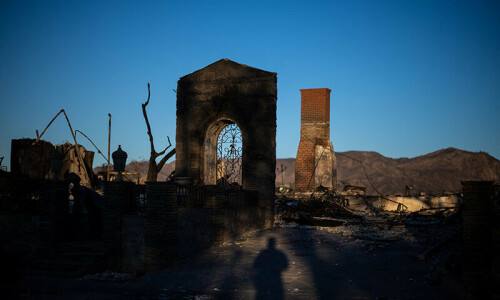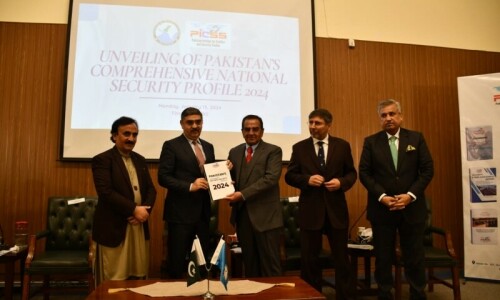THE national political scene is at once interesting, depressing, thrilling, killing, sad and funny. This has always been the case, but in the last few years, marked by this leak or that, the shades have gone darker. It is like people playing you-leak-this-and-I-will-leak-that. It is a game that has no winner, and a lot of losers. But somehow our love for the game is infinite, it seems.
The issue of surveillance of politicians, however, is not new. In 2018, data of hundreds of German politicians was leaked. Those on the target included Frank-Walter Steinmeier, the president, and German chancellor Angela Merkel. Hackers leaked confidential information related to politicians. German politician Katarina Barley described the incident as a ‘serious attack’.
In 2013, American Edward Snowden blew his famed whistle about the National Security Agency’s (NSA) ‘unethical activities’ related to its surveillance practices. Snowden was employed as a computer professional in 2006 by the Central Intelligence Agency (CIA) where he found out about surveillance of the general public. He started collecting more evidence about the surveillance system. He was still working on it when he was hired by the NSA as lead technologist, and spent about four years (2009-13) there. When he was done with collecting all relevant information about surveillance practices, he went on medical leave, and arranged a meeting with a journalist, revealing information about a project that entailed monitoring phone calls of 35 world leaders.
In our own context, the practice of surveillance was in place as early as in the 1970s. Stanley Wolpert, writing in Zulfi Bhutto of Pakistan narrates that Sheikh Mujibur Rahman, who had been released after nine months in custody, wanted to meet Zulfikar Ali Bhutto at the presidency. “Mujib had asked the military secretary to ‘leave’ so that they could ‘talk’.” Quoting Bhutto, writes Wolpert: “He grasped me by the hand and made me sit next to him. He started talking about the situation. At this point, thinking the room might be bugged, we walked out to the veranda towards the back of the house and sat in the portico.”
During an interview with a private television channel, Saeed Mehdi, a former deputy commissioner of Rawalpindi, said: “When prime minister Bhutto was spending last days of his life in his death cell, I was sent by martial law authorities to offer him facilities if he filed a mercy petition. Superintendent of jail Yaar Muhammad knew that the death cell was bugged and he was communicating with Bhutto with hand gestures.” Similar stories have been talked about the presidency when Asif Ali Zardari was its occupant. And such stories have never been denied by anyone. The current leaks are nothing but an extension of the same phenomenon.
Muhammad Abid
Karachi
Published in Dawn, October 2nd, 2022













































Dear visitor, the comments section is undergoing an overhaul and will return soon.